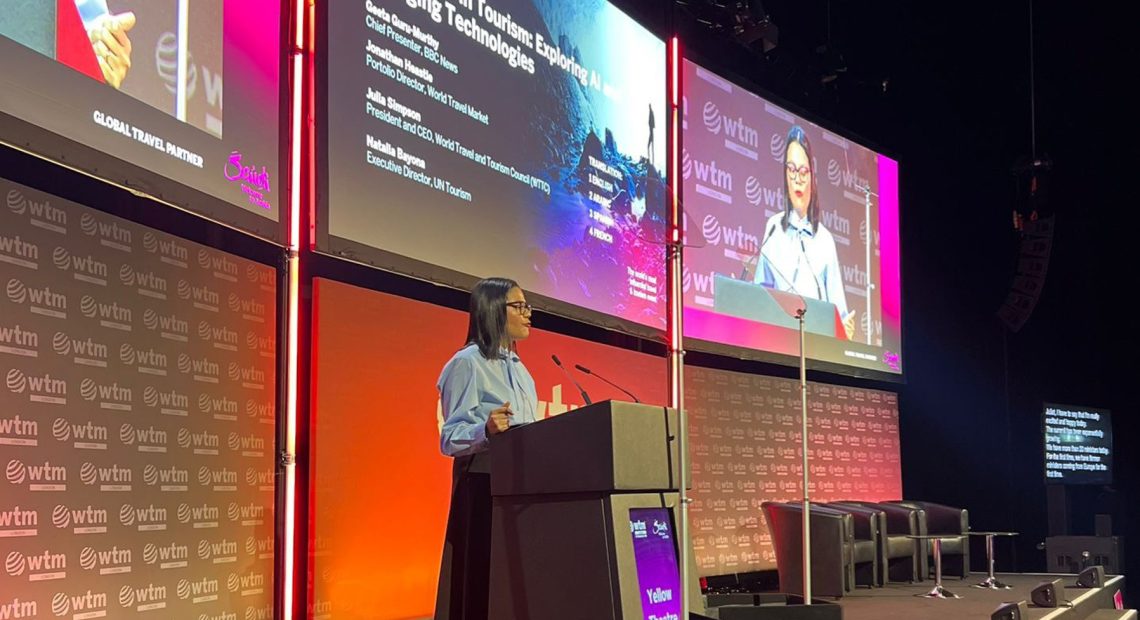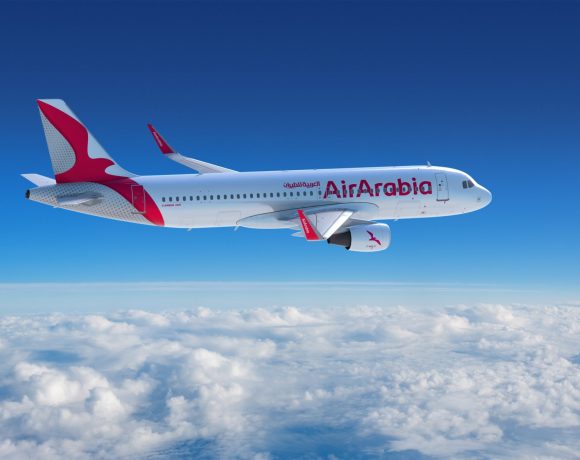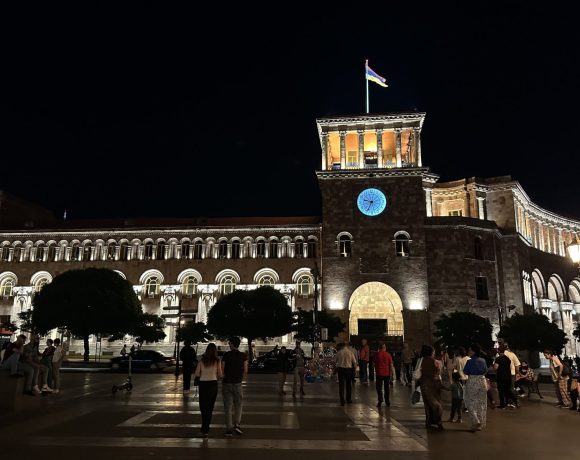AI’s transformational role in tourism spotlighted

At UN Tourism Ministers Summit
Integrating Artificial Intelligence (AI) into the tourism industry took centre stage at the World Travel Market Ministers Summit, where leaders from both the public and private sectors gathered to explore AI’s role and potential to reshape the industry.
Held on November 7, 2024, in collaboration with UN Tourism and the World Travel & Tourism Council (WTTC), the summit in London, UK, brought together tourism ministers from over 20 countries and executives from major industry players like Expedia, HBX Group, JTB Corp, and SITA.
During the opening remarks, UN Tourism Executive Director Natalia Bayona stressed the importance of leveraging AI to enhance decision-making in tourism.
“Tourism can create unique stories,” she said, “and using technology for good in marketing, digital infrastructure, and education is crucial. Above all, AI needs human intelligence to shine truly”. Bayona underscored the sector’s need to adopt generative AI tools to enable hyper-personalised travel experiences, positioning AI as a vital asset for the future.
Julia Simpson, President and CEO of the World Travel & Tourism Council, also addressed the summit, highlighting the sector’s challenges and opportunities.
“While we must address global issues like climate change and sustainability, we also have incredible opportunities ahead,” she said.
$10 trillion benefit
Referring to the sector’s remarkable economic contribution, Simpson pointed out that in 2023, tourism generated nearly $10 trillion globally, supporting over 330 million jobs. She said the industry can ensure a resilient, sustainable, and inclusive future by embracing AI and other emerging technologies.
As part of the discussions, UN Tourism unveiled its Strategic Roadmap: AI for Good in Tourism, a vision for how the tourism sector can harness AI to drive transformation. Bayona highlighted the organisation’s ongoing research, education, investment, and innovation initiatives, noting that AI’s rapid adoption is already reshaping the industry.
In collaboration with Saxion University of Applied Sciences, UN Tourism’s latest research, which will be published in 2025, focuses on adopting AI in tourism. The study will assess how AI is integrated across member states and provide strategic recommendations.
Bayona also noted the importance of upskilling and reskilling the workforce as AI transforms tourism jobs. UN Tourism is already addressing this challenge by enhancing its Tourism Online Academy, integrating AI tools into ten new courses designed to equip professionals with essential skills.
Diversifying funding models
Investment was another key topic, with summit participants emphasising the need for more funding in AI and innovation. UN Tourism focuses on diversifying funding models and exploring how AI can improve investment strategies, particularly for emerging tourism startups.
Additionally, the organisation supports entrepreneurs throughout the tourism value chain by offering workshops and partnerships to help businesses innovate and adapt to a technology-driven future.
A notable initiative announced during the summit was the formation of a Global Task Force on Universal Nomenclature for AI in Tourism. This collaborative effort aims to standardise AI terminology across the sector, ensuring clarity and consistency for stakeholders.
UN Tourism Secretary-General Zurab Pololikashvili highlighted AI’s transformative potential: “By combining the strengths of both the public and private sectors, we can ensure AI fulfils its immense potential.”
In line with its commitment to fostering innovation, UN Tourism also launched the UN Tourism Artificial Intelligence Challenge, calling for AI-driven solutions that will shape the future of tourism. This challenge will focus on destination branding, smart destinations, education, and operational efficiency.
UN Tourism plans to introduce regional awards and capacity-building initiatives with key partners, including the Development Bank for Latin America and the Caribbean (CAF). This further reinforces its efforts to drive inclusive growth in AI-powered tourism.
The Ministers Summit underscored the urgency of adopting AI in an inclusive way, ensuring that small and medium-sized enterprises (SMEs) and emerging destinations also benefit from the technological advancements shaping the future of tourism.
Featured image: UN Tourism Executive Director Natalia Bayona speaks at the World Travel Market Ministers Summit in London, UK, on November 7, 2024. Credit: UN Tourism
Last Updated on 3 months by Arnold Pinto













